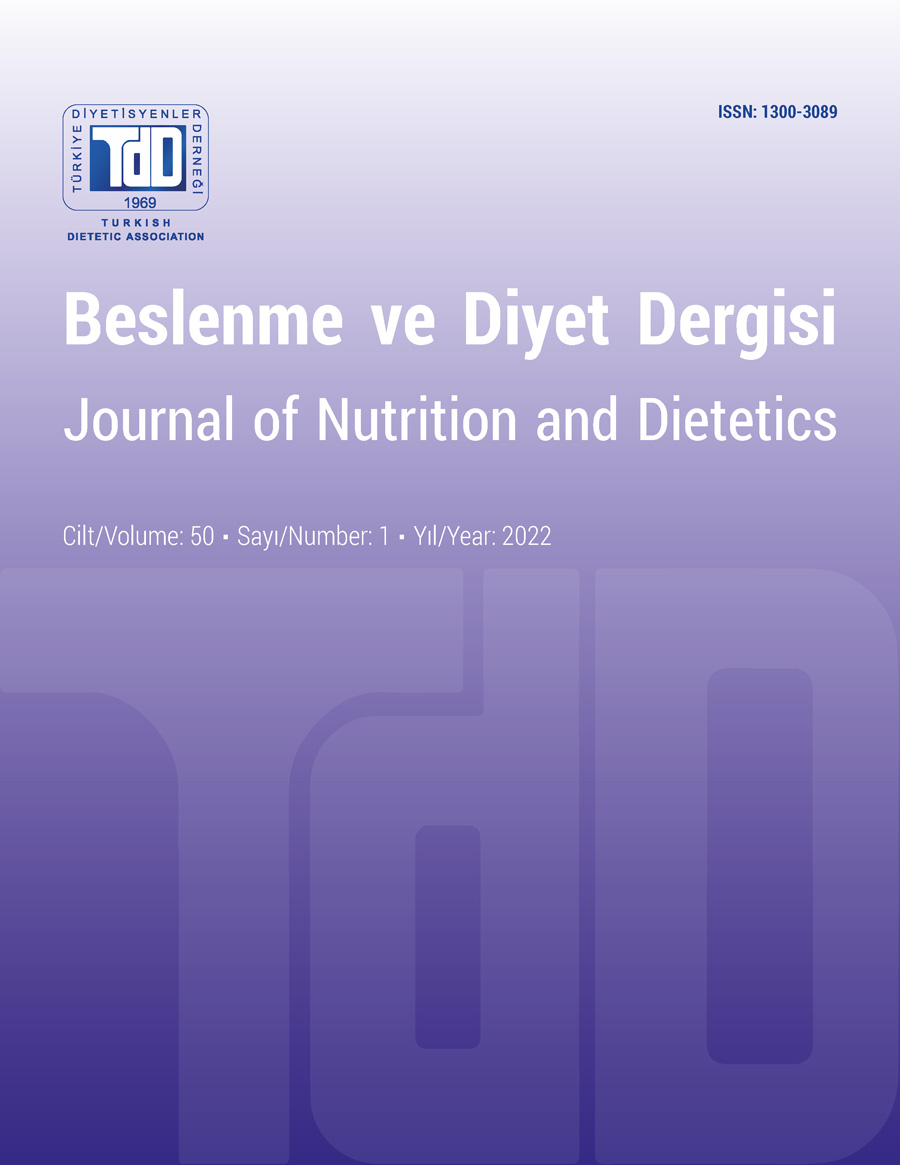Evaluation of Relationships between Health Anxiety, Coronavirus Anxiety and Healthy Eating Anxiety among Dietitians during COVID-19
DOI:
https://doi.org/10.33076/2022.BDD.1538Keywords:
Health anxiety, coronavirus anxiety, orthorexia nervosaAbstract
Aim: It was aimed to determine the effects of health anxiety and coronavirus anxiety on orthorexia nervosa status of dietitians during COVID-19 pandemic.
Subjects and Methods: The research was carried out with dietitians who were the members of the Turkish Dietetic Association. With the electronic questionnaire sent to the participants, Health Anxiety Inventory (HAI/SAO), Coronavirus Anxiety Scale Short Form (CAS/KAO) and Orthorexia Self Test (ORTO-15) were applied.
Results: A total of 516 dietitians, 451 females and 65 males, participated in the study. The median SAO scores of female and male dietitians were 33 and 31, respectively (p=0.038). While the median KVÖ median scores were 2.2 and 1.5 for female and male dietitians, respectively (p<0.001); ORTO-15 scores were 37.55 for female and 38.41 for male dietitians (p=0.164). Dietitians’ gender, education, food supplement use, number of snacks did not make difference on coronavirus anxiety and orthorexia nervosa status (p>0.05). Orthorexic dietitians consume more main meals (p<0.007). While there was a positive and moderately significant correlation (r=0.747, p<0.001) with the median KAO scores of dietitians with a higher median SAO score, there was a weak negative correlation for ORTO-15 (p<0.001). As SAO scores increased, a 45.7% increase was found in KAO scores.
Conclusion: Dietitians with high health anxiety also had high coronavirus anxiety, but they were not orthorexic. Orthorexia nervosa was not determined in dietitians with corona virus anxiety and health anxiety.

